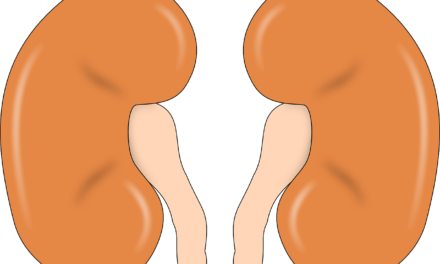The world of anabolic steroids has long been associated with bodybuilding and athletic performance enhancement. These synthetic derivatives of testosterone are known for their ability to stimulate muscle growth, increase protein synthesis, and accelerate tissue repair. However, an unexpected and controversial application of anabolic steroids has emerged: their potential use in eating disorder recovery. Eating disorders, such as anorexia nervosa, bulimia nervosa, and binge eating disorder, present complex challenges to both individuals and healthcare professionals. These disorders not only affect physical health but also have profound psychological impacts. The question of whether anabolic steroids can play a role in facilitating eating disorder recovery has sparked both intrigue and concern.
Anabolic Steroids: Mechanisms and Effects
Anabolic steroids exert their effects through interaction with androgen receptors, influencing gene expression and protein synthesis. This results in increased muscle mass, bone density, and improved mood. Proponents argue that introducing anabolic steroids into eating disorder recovery could help address the profound physical deterioration that often accompanies these disorders. By promoting muscle growth and repairing tissue damage caused by extreme caloric restriction, anabolic steroids could potentially hasten the recovery process.
However, the allure of these potential benefits must be balanced against the significant risks and side effects associated with anabolic steroid use. Cardiovascular issues, liver damage, hormonal imbalances, and psychological disturbances are all potential consequences. Moreover, the potential for misuse and dependency raises concerns about the long-term well-being of individuals seeking recovery from eating disorders.
Eating Disorders and Recovery
Eating disorders are complex mental health conditions characterized by disturbed eating behaviors and distorted body image. Anorexia nervosa involves severe calorie restriction, often leading to emaciation. Bulimia nervosa entails binge eating followed by purging behaviors. Binge eating disorder involves consuming large quantities of food in a short time. These disorders compromise physical health, leading to malnutrition, electrolyte imbalances, and cardiac problems.
Eating disorder recovery is a daunting journey due to the psychological resistance to weight gain, body image concerns, and medical complications. Traditional treatment approaches include nutritional counseling, psychotherapy, and medical monitoring. However, the persistent nature of these disorders calls for innovative strategies that address both the physical and psychological aspects of recovery.
The Rationale for Steroid Use in Eating Disorder Recovery
The argument for anabolic steroid use in eating disorder recovery revolves around the potential benefits for physical health. Rapid weight gain and increased lean body mass achieved through steroid use could counteract the detrimental effects of extreme caloric restriction. Proponents suggest that this approach might help individuals reach a healthier weight more quickly, leading to improved overall health and potentially reducing the risk of long-term complications.
Yet, this rationale raises ethical concerns and controversies. Is the use of anabolic steroids promoting a “quick fix” solution to a deeply rooted psychological issue? Does it address the underlying psychological factors driving disordered eating behaviors? The potential for misuse, abuse, and disregard of psychological well-being raises important ethical questions that must be carefully considered.
Case Studies and Research Findings
Research exploring the use of anabolic steroids in eating disorder recovery is limited but intriguing. Some case studies suggest that carefully managed steroid use could lead to increased muscle mass, improved mood, and accelerated weight gain. However, these findings are tempered by the limited sample sizes and the need for rigorous, controlled research.
Further investigation is necessary to determine the long-term impact of anabolic steroids on both physical and psychological recovery. Moreover, research should explore the potential for adverse effects, including psychological dependency on steroids, body image disturbances, and cardiovascular complications.
Potential Risks and Concerns
The use of anabolic steroids in eating disorder recovery comes with inherent risks. Individuals vulnerable to eating disorders may be more prone to psychological dependency on steroids, exacerbating the underlying issue. The quest for an idealized body image, often a driver of disordered eating, could be perpetuated by steroid use.
Furthermore, the long-term health consequences of anabolic steroid use must be considered. Cardiovascular problems, liver damage, and hormonal imbalances could counteract any short-term gains and contribute to an individual’s overall health decline. The potential for “quick fixes” to obscure the importance of addressing the complex psychological factors underpinning eating disorders is a critical ethical concern.
Alternatives and Complementary Approaches
While the potential use of anabolic steroids is debated, alternative and complementary approaches continue to play a significant role in eating disorder recovery. Gradual refeeding, cognitive-behavioral therapy, and peer support are some of the proven strategies that address both the physical and psychological components of these disorders.
A comprehensive, multi-dimensional approach that combines traditional treatments with innovative interventions could be the key to more effective recovery strategies. By fostering a deeper understanding of the psychological drivers of eating disorders and emphasizing holistic well-being, this approach could reduce the reliance on potentially harmful interventions.
Conclusion
The issue of using anabolic steroids in eating disorder recovery is indeed weighty, carrying both potential benefits and considerable risks. While the potential to accelerate weight gain and promote physical recovery is intriguing, the ethical and medical complexities cannot be ignored. The need for rigorous research, careful consideration of ethical implications, and a comprehensive approach that addresses the multifaceted nature of eating disorders is paramount. In striving for effective solutions, the well-being of individuals on the path to recovery must remain the ultimate priority.
QNA
Q1: What are anabolic steroids, and how are they commonly used?
A1: Anabolic steroids are synthetic derivatives of testosterone that are often used to stimulate muscle growth, increase protein synthesis, and accelerate tissue repair. They are commonly associated with bodybuilding and athletic performance enhancement.
Q2: How prevalent are eating disorders, and what are their physical and psychological impacts?
A2: Eating disorders, such as anorexia nervosa, bulimia nervosa, and binge eating disorder, are significant mental health challenges affecting millions of individuals worldwide. They have profound impacts on physical health, often leading to malnutrition, electrolyte imbalances, and cardiac issues, while also causing distorted body image and psychological distress.
Q3: What is the rationale for considering anabolic steroids in eating disorder recovery?
A3: The rationale behind considering anabolic steroids in eating disorder recovery is based on their potential to promote rapid weight gain and increase lean body mass. Advocates argue that this approach could counteract the physical deterioration caused by extreme caloric restriction and accelerate the recovery process.
Q4: What are the potential benefits of using anabolic steroids in eating disorder recovery?
A4: Advocates suggest that anabolic steroids could lead to accelerated weight gain, increased muscle mass, and improved mood in individuals with eating disorders. These benefits could potentially enhance overall physical health and reduce the risk of long-term complications associated with these disorders.
Q5: What are the risks and side effects of anabolic steroid use?
A5: Anabolic steroid use comes with a range of potential risks and side effects, including cardiovascular problems, liver damage, hormonal imbalances, and psychological disturbances. The misuse or dependency on steroids could exacerbate existing psychological issues and have negative long-term health consequences.
Q6: How do traditional treatment approaches for eating disorder recovery compare to the potential use of anabolic steroids?
A6: Traditional treatment approaches for eating disorder recovery, such as nutritional counseling, psychotherapy, and medical monitoring, focus on addressing both the physical and psychological aspects of these disorders. The potential use of anabolic steroids introduces a controversial alternative that primarily targets the physical aspects and raises ethical concerns about addressing the underlying psychological factors.
Q7: What does existing research say about the use of anabolic steroids in eating disorder recovery?
A7: Existing research on the use of anabolic steroids in eating disorder recovery is limited but suggests that carefully managed steroid use could lead to increased muscle mass, improved mood, and accelerated weight gain. However, the research is based on small sample sizes and lacks comprehensive, controlled studies.
Q8: What are the ethical considerations surrounding the use of anabolic steroids in eating disorder recovery?
A8: Ethical concerns arise from the potential for anabolic steroids to offer a “quick fix” solution to complex psychological issues underlying eating disorders. The focus on physical recovery through steroids may neglect the importance of addressing the psychological drivers and promoting a sustainable, holistic recovery process.
Q9: What are some alternative and complementary approaches to eating disorder recovery?
A9: Alternative and complementary approaches to eating disorder recovery include gradual refeeding, cognitive-behavioral therapy, and peer support. These strategies aim to address both the physical and psychological aspects of eating disorders, fostering a more comprehensive and sustainable path to recovery.
Q10: What is the key takeaway regarding the potential use of anabolic steroids in eating disorder recovery?
A10: The potential use of anabolic steroids in eating disorder recovery is a complex and controversial issue. While the benefits of rapid physical recovery are intriguing, the ethical and medical complexities, as well as the need for a comprehensive, multidimensional approach, must be carefully considered. The well-being of individuals on the journey to recovery remains of utmost importance.
Author

Dr. Aditya K. Sharma
I am Dr. Aditya Sharma, a dedicated urologist specializing in kidney transplants and advanced urological surgeries. My career is driven by a passion for delivering exceptional care and pioneering surgical techniques. Outside the operating room, I have a keen interest in studying the effects of anabolic steroids on bodybuilding, seeking to understand the fine line between enhancing performance and maintaining health.







